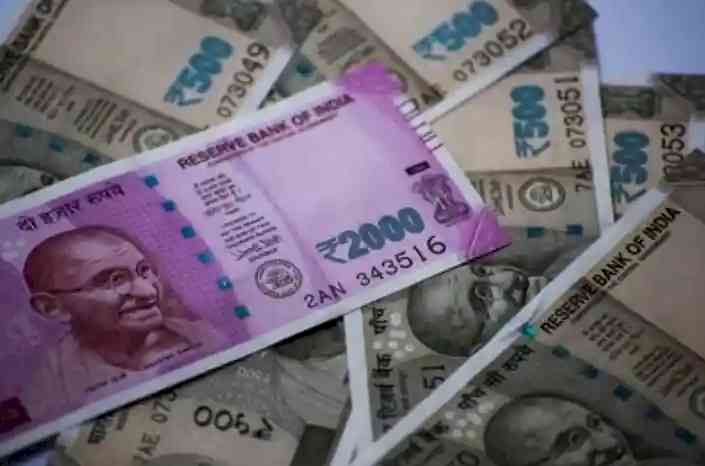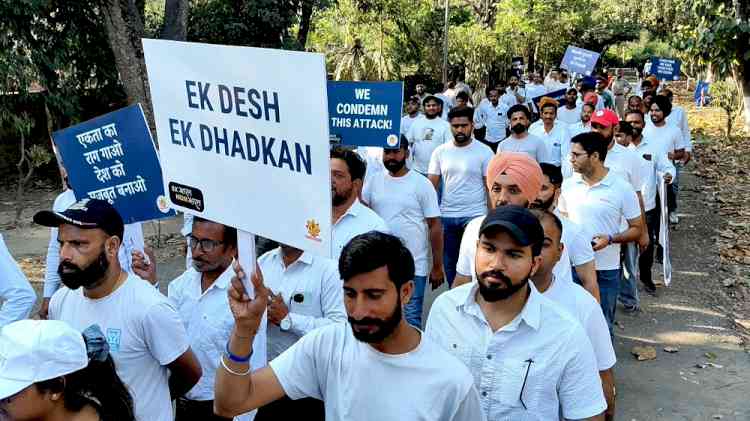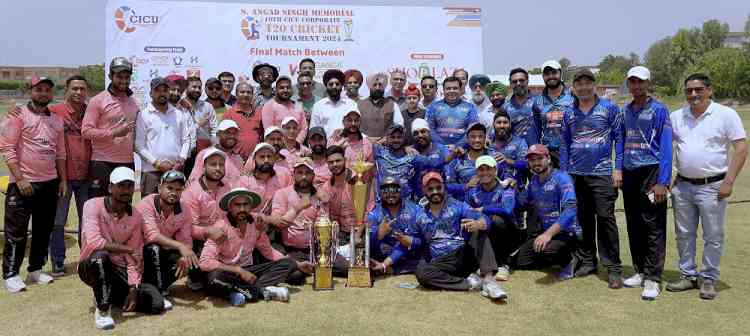With debt of Rs 2.82L cr, incoming govt faces daunting task in Punjab
With a whopping public debt of Rs 2.82 lakh crore, the incoming government in one of the most fiscally stressed states, Punjab will be faced with the daunting task to usher in much-needed economic reforms as a major component of government earning and borrowing is meant for servicing debt rather than capital expenditure.

Vishal Gulati
Chandigarh, Feb 26 (IANS) With a whopping public debt of Rs 2.82 lakh crore, the incoming government in one of the most fiscally stressed states, Punjab will be faced with the daunting task to usher in much-needed economic reforms as a major component of government earning and borrowing is meant for servicing debt rather than capital expenditure.
Twenty per cent of the annual budget is being spent only to pay the interest on the loans.
As per the latest findings of the Comptroller and Auditor General of India, the state's financial crisis is set to worsen with the debt likely to reach Rs 3.73 lakh crore by 2024-25.
Government officials told IANS that the state's debt has increased by Rs 1 lakh crore in the past five years under the current Congress government now led by Chief Minister Charanjit Singh Channi, largely owing to populism.
When this government took over the reins in 2017, it got the legacy of a Rs 2.08 lakh crore debt left by the decade-long rule of the Shiromani Akali Dal-BJP in the state.
An official familiar with the matter told IANS that political compulsions and populist announcements have been taking a huge toll on the state's finances and this may surge the debt beyond the projected Rs 2.82 lakh crore.
Finance Minister Manpreet Badal in his last budget speech for this fiscal projected the total revenue receipts at Rs 95,257 crore. However, the state has never managed to achieve more than 80 per cent of its revenue target.
Also approximately 40 per cent of the state's total estimated revenue receipts of Rs 95,257 crore for the current fiscal would go into debt servicing.
As per the budget estimates of an outlay of Rs 168,015 crore for 2021-22, the outstanding debt is likely to be Rs 273,703 crore in 2021-22, which is 45 per cent of the GSDP.
The total outstanding debt of the state as on March 31 is projected at Rs 252,880 crore, which is 42 per cent of the GSDP for 2020-21 and the outstanding debt is likely to be Rs 273,703 crore in 2021-22, which is 45 per cent of the GSDP.
Besides a major component of earnings and market borrowings go into debt servicing, the revenue goes into unproductive expenditure like disbursement of salaries, pensions and power subsidies for the farmers.
Also, say officials, the Covid-19 pandemic has caused a significant deterioration in public finances, adding to pre-existing strains. Also businesses in the state are reeling because of a sluggish economy and poor liquidity.
As per the recent memorandum by the state to the Centre for extending the Goods and Services Tax (GST) compensation, Punjab says being an agrarian economy it was deriving a significant portion of its revenue from the agriculture sector in the pre-GST era by imposition of tax on agricultural produce (mainly foodgrains).
This was realized in the form of the levy of Purchase Tax on agricultural produce at the rate of five per cent of the minimum support price (MSP) of produce collected from the purchaser of such produce.
In addition, an Infrastructure Development Fee at the rate of three per cent was also levied on purchase of foodgrains. The state collected Rs 3,094 crore in 2015-16 from the Purchase Tax and Infrastructure Development Fee alone, i.e. 16.55 per cent of its total tax revenue of Rs 18,692.89 crore during that year.
With the implementation of GST, both the Purchase Tax and Infrastructure Development Fee on foodgrains have been subsumed in the GST.
Since the GST is a destination-based tax and agricultural produce is largely exempted under it, Punjab has experienced a permanent loss of a significant portion of the state revenue.
However, the saving grace for the government is the first half of this fiscal with a hefty increase in revenue from the pre-Covid levels.
The GST revenue comprising state goods and services tax (SGST) and integrated goods and services tax from April to September of 2021 was Rs 7,851 crore, which is 67.55 per cent more than in the corresponding period of 2020, and 54 per cent more than in the pre-pandemic year of 2019-20.
But the area of concern for authorities now is ending GST compensation from the Centre on June 30, unless it is extended by the GST Council, leaving the state to fend for itself thereafter.
A report by the Group of Experts (GOE) led by noted economist Montek Singh Ahluwalia, set up by Chief Minister Amarinder Singh to revive Punjab's economy, recommended measures like reducing average cost of government debt, banning recruitment in police and bringing pay scales of government employees on par, among others.
The panel in its report to aid medium and long-term revival strategy was categorically clear that unless measures are taken to correct the fiscal situation over the next few years, it will not be possible to achieve the objective of restoring Punjab to its pre-eminent position.
The experts suggested rationalisation of power subsidies given to farmers that is 1.9 per cent of its GDP and grew from Rs 5,670 crore in 2019-20 to Rs 7,180 in 2020-21.
Ahead of the polling for the Assembly elections on February 20, the opposition Aam Aadmi Party (AAP) had accused the previous Akali-BJP and current Congress government of plunging Punjab into debt.
"With the population of 3 crore, today every individual in Punjab has a debt of Rs 1 lakh. Every child who is born in Punjab already has a debt of 1 lakh rupees on them right after their birth," AAP leader Raghav Chadha told the media.
SAD President Sukhbir Badal, the man known for micro poll management for his now own controlled century old party with the focus on farmers' interests and justice for them, said Punjab and Punjabis are in a crisis.
"The Congress government did nothing for five years. It reneged on each and every promise made to the people be it complete farm loan waiver, Rs 2,500 per month unemployment allowance, jobs for each household and increase in social welfare benefits.
"It also stalled all development work but simultaneously presided over a sand and liquor mafia and looted the state exchequer. It was due to this that the state's debt has increased by Rs 1 lakh crore in the last five years alone."
All the parties were banking on freebies to woo the electorate.
The AAP has promised Rs 1,000 for all women, while the Congress has assured Rs 1,100 per month for needy women. The SAD-BSP alliance has promised Rs 2,000 per month to all women heads of BPL families.
Two-time Chief Minister and former Congress leader Amarinder Singh in his election campaignin stressed Punjab "needs the Centre's support for its economic revival, which his party, the Punjab Lok Congress, in alliance with the BJP would help achieve."
The state has no money for development, which will remain a far cry under the false promises of parties like the Congress, AAP and SAD, who were not willing to work in coordination with the Centre, he stressed.
(Vishal Gulati can be contacted at [email protected])


 IANS
IANS 










